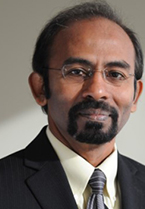Horizontal Drilling – Design Applications
Disciplines: Completions | Drilling
Course Description
Recent years have witnessed an explosion in the number of horizontal wells being drilled around the world. The drilling of horizontal wells presents challenges for the operators, as well as for the well planners, downhole tool engineers, and drilling engineers. In the next few years, a new generation of engineers will get involved stretching the horizontal departure in the drilling envelope. Stretching the space by way of extending the reach to a greater depth requires improved models, materials, and advanced technologies which are vital at a time when the knowledge base of the drilling industry is eroding and the wells per engineers are increasing.
The framework of questions the course will address include “What are the present challenges associated with drilling horizontal wells?” and “What are the advancements in technologies needed to meet the challenges?”. Although several challenges are inherently present, the presentation will particularly focus on the following primary drilling challenges: Drill String Integrity, Downhole Tool Integrity, Tool Reliability, Wellbore Integrity, and Well Placement.
Learning Level
Intermediate
Course Length
1 Day
Why Attend
Attendees can expect to:
- LEARN the challenge areas of drilling these horizontal wells
- LEARN how the industry is outlining the emerging future direction
- UNDERSTAND the advancements achieved in these areas
- KNOW the improvements that can be made for maximisation of efficiency
- LEARN about casing integrity and casing wear mitigation
- BETTER plan, design and engineer horizontal wells
Who Attends
This course will be informative and will appeal to a broad audience. This is a fundamental course for engineers new to horizontal well design and planning. Relevant job titles are:
- Drilling Engineers
- Well Engineers
- Well Planners
- MWD Engineers
- All from inexperienced to experienced
CEUs
Engineers are responsible for enhancing their professional competence throughout their careers. Licensed, chartered, and/or certified engineers are sometimes required by government entities to provide proof of continued professional development and training. Training credits are defined as Continuing Education Units (CEUs) or Professional Development Hours (PDH).
Attendees of SPE training courses earn 0.8 CEUs for each day of training. We provide each attendee a certificate upon completion of the training course.Cancellation Policy
All cancellations must be received no later than 14 days prior to the course start date. Cancellations made after the 14-day window will not be refunded. Refunds will not be given due to no show situations.
Training sessions attached to SPE conferences and workshops follow the cancellation policies stated on the event information page. Please check that page for specific cancellation information.
SPE reserves the right to cancel or re-schedule courses at will. Notification of changes will be made as quickly as possible; please keep this in mind when arranging travel, as SPE is not responsible for any fees charged for cancelling or changing travel arrangements.
We reserve the right to substitute course instructors as necessary.
Instructor

Dr Robello Samuel has been a Halliburton Technology Fellow and working with Halliburton since 1998. He is currently a research and engineering lead for well engineering applications and responsible for research and scientific activities for new technologies. In his present role he also conceives and develops creative/innovative technology in drilling solutions critical to the company’s success. He has more than 31 years of experience in domestic and international oil/gas operations. He has been concurrently an adjunct Professor at the University of Houston for the past 13 years. He has published more than 170 technical papers. He started his career working on rigs as drilling engineer. He holds BS and MS degrees in mechanical engineering, as well as MS and PhD degrees in petroleum engineering from University of Tulsa. He is also the author of thirteen bestselling drilling engineering books.
He is the recipient of several awards including the Gulf Coast SPE Drilling Engineering Award, SPE International Drilling Engineering Award, SPE Distinguished Membership Award and the Distinguished Lecturer award from the Society of Petroleum Engineers.
